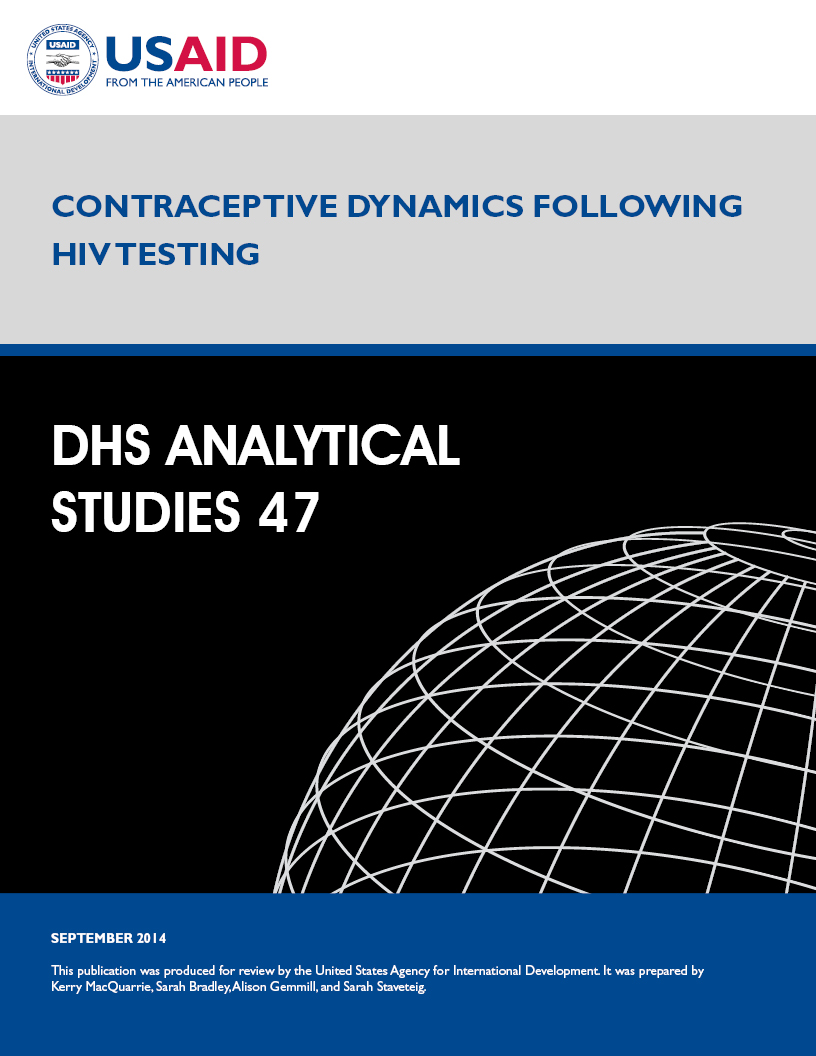
Abstract:
This study uses Demographic and Health Survey
(DHS) data to investigate how receipt of HIV
test results influences subsequent
contraceptive behavior. In five countries
(Kenya, Lesotho, Malawi, Zambia, and
Zimbabwe), we analyze the effect of HIV
testing during antenatal care on adoption of
contraception following birth. In two of the
countries (Lesotho and Zimbabwe), we also
examine (a) adoption and (b) discontinuation
of contraception among women who did not
experience a birth in the past 24 months and
for whom the option of an HIV test occurs
outside of the context of antenatal care. We
use longitudinal contraceptive calendar data
to estimate hazard models of a change in
contraceptive behavior, using as covariates
(1) HIV status as determined by biomarker
testing at the time of the survey and (2)
women’s self-reported HIV testing experience.
In Kenya only, HIV-positive women have a
longer duration to adopting contraception
following birth compared with HIV-negative
women. This relationship is not found
elsewhere, nor is HIV status associated with
the hazard of adopting or discontinuing
contraception among women without a birth in
the past 24 months.
In Lesotho, Zambia, and Zimbabwe, women who
receive HIV test results during antenatal
care have a shorter expected time to adopting
contraception, regardless of HIV status, but
not in Kenya or Malawi. Among women without a
birth in the past 24 months, those who
receive HIV test results have a shorter
expected time to adopting contraception in
Zimbabwe, but there is no statistical
difference in Lesotho. Experience with HIV
testing does not influence discontinuation of
contraception.
